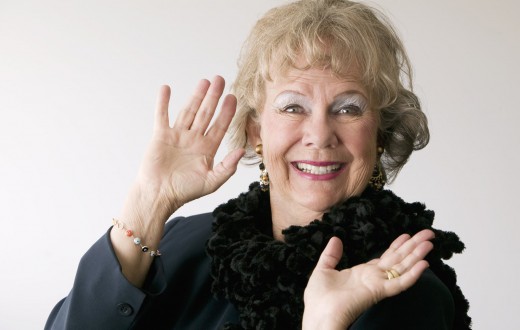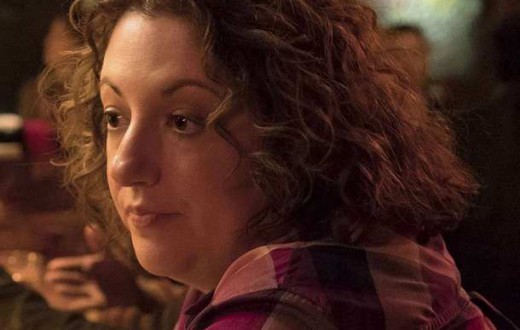When you think about it, our calling is all about learning. With every project, we learn new lines, and we learn new characters, and through them we learn new ways people deal with their emotions. What’s more, we should all learn something from every director we work with, and most actors we work with too, good and bad.
So in keeping with the spirit of learning that is so inherent to our craft, we should all be taking acting classes. That said, not all classes are created equal. As with any business, especially in the arts, there are all manner of charlatans and frauds out there preying on newbies and offering little of substance.
So how can you know if a class is right for you? And how can you know what to watch out for when auditing a class? (And yes, you should always, always ask if you can audit a class before plunking down your hard-earned money.)
Here are five red flags to look for in an acting class, followed by five ways to know you’ve found the right class for you!
1. Red Flag: The teacher never offers critiques
The point of taking any kind of class is to learn. And although a “class” wherein all feedback is positive and everyone is always doing just super great work may feel nice at the moment, it really isn’t improving your craft. You can be coddled at your grandma’s house; spend your money on a different acting class however.
2. Red Flag: The cult leader
If the main focus of the class seems to revolve around the ego of the teacher, this isn’t really helping you. It isn’t even about you. This business perhaps more than any other produces some damaged characters, and some “teachers” are clearly in it for the ego-stroke of telling young actors endless tall tales about this or that famous celebrity whom they know SO WELL. Avoid if there’s more storytelling and ego-boosting than acting.
3. Red Flag: The teacher is condescending
Perhaps “negging” is more than a neckbeard, wannabe pick-up artist technique that actually works on some people, but I’ve never seen any evidence of it. Honest and fair critiques have a place in learning, but if the teacher is condescending or rude about the efforts of his or her students, it isn’t helpful to the students; it’s about the teacher’s ego.
4. Red Flag: The teacher has the students critique each other
We all know what opinions are like. And there’s a reason why films and plays have just one director: if everyone on set or in rehearsals went around offering their views on everyone else’s acting, there would be bloodshed. No, seriously, it would look like a scene from Hellraiser. Same goes for in class: it simply isn’t appropriate for one actor to directly critique another when they’re both there to learn from the instructor.
5. Red Flag: The teacher is aloof
Acting and directing is an intimate dance, and taking an acting class is asking to be directed. If the teacher doesn’t know everyone’s name, or is simply packing in as many students as possible and overcrowding the class, it’s going to be hard to develop that kind of intimacy and trust. Best to avoid these, as again, the focus appears to be elsewhere, not on the students’ needs.
Now for the positive! How to know you’ve struck gold in an acting class:
1. Gold: You feel welcome
The term “safe space” has been abused and co-opted lately, but in truth we as actors need exactly that to thrive and to feel free to explore. When you’re in a class and you feel you are among people who are happy and excited to be there and happy to have you there with them, it’s a great sign you’ll be able to do good work there.
2. Gold: There is a clear curriculum
Think about what your “elevator pitch” for this class would be to a friend: can you describe what’s being taught in 25 words or less? That’s a great sign of a teacher who is focused, professional, and has a clear idea of what they want to impart to their students.
3. Gold: The teacher is focused on the students
Acting classes should be active. If you audit a class where the students are continually performing, trying new techniques, reading scenes and etc., all the while interspersed with instruction and critique, you have hit gold. This is what class should be; it’s not about lengthy war stories and name-dropping while the students sit and listen.
4. Gold: The students
If the students in the class are talented, generous, and committed, it’s a great sign that you are auditing a solid class. Talent begets talent, and talent attracts talent. Plus, you can think of an acting class as a sort of pseudo-show or ongoing film project in the sense that, if it is a good group, it will generate a sense of family and trust–not to mention be a great crèche for learning, both from the instructor and from watching your fellow actors!
5. Gold: Your gut instinct
It’s a shame how much of our instinct has been beaten out of us as modern humans; we’re taught NOT to trust our first reaction to situations and people. We as actors, however, are famously the opposite of that: our instincts are a vital part of our toolkit. When auditing a class you should be able to imagine yourself taking part comfortably and connecting with the teacher and the students involved. “Good vibes” may be a touchy-feely concept for some, but the truth is, without a sense of safety, comfort and togetherness, good acting–and open, eager, adventurous learning–simply cannot exist.
Now get out there and get yourself in a class!







